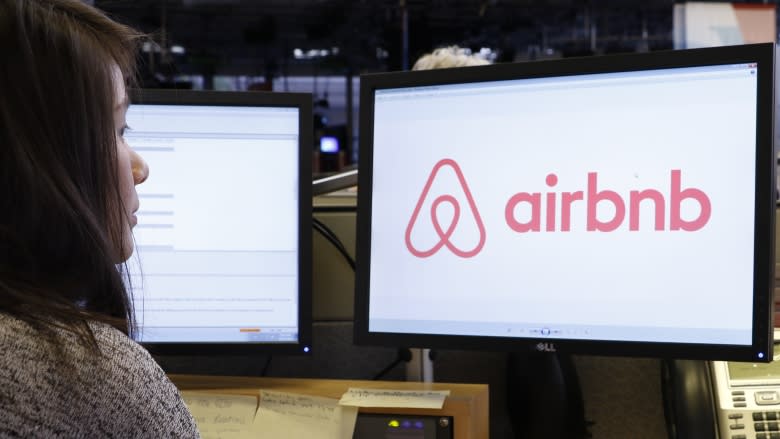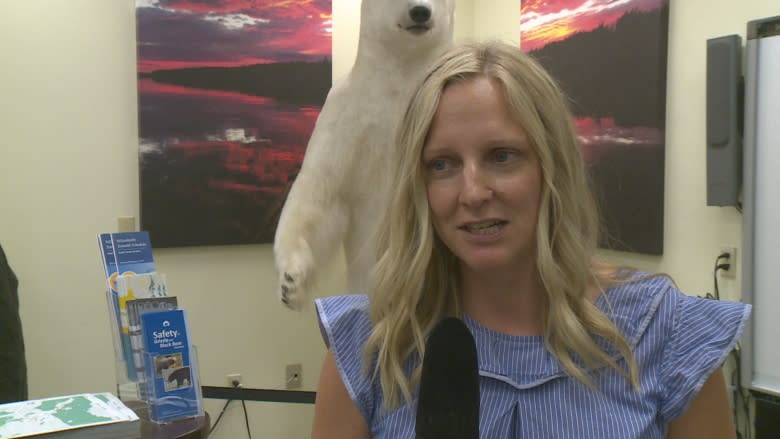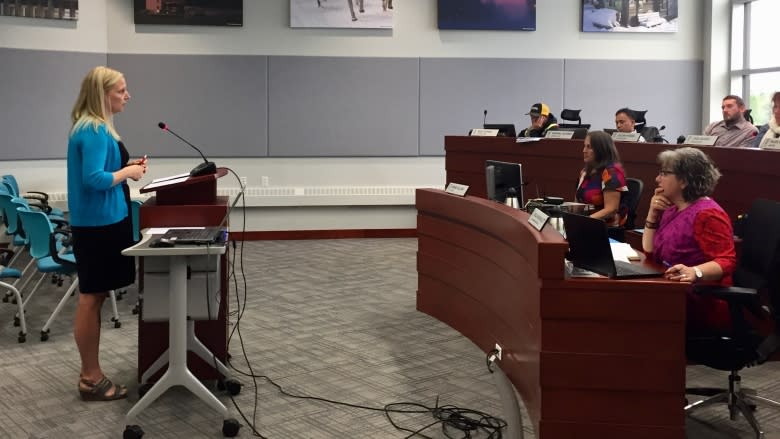Licence to host: Councillors discuss regulating Airbnbs in Yellowknife
Yellowknife is one step closer to regulating short-term rentals like Airbnb.
The city's Municipal Services Committee discussed a proposed bylaw put forth by Kerry Penney, director of the Department of Policy, Communications and Economic Development, on Monday.
The proposal suggests hosts for Airbnb and other short-term rentals get a $100 business licence every year. They would also have to comply with any territorial legislation applicable to businesses, like yearly fire code inspections.
The hosts would also have to display their business licence number in all advertisements, including listings on websites like Airbnb or local the classified site YKTrader.
If a short-term rental host fails to display their business licence number, it could result in a fine of up to $1,000 per day.
Though this might seem onerous to people hoping to rent out an extra bedroom for a few weekends over aurora season, Penney said that ultimately, a business is a business.
"We don't differentiate other types of businesses this way — for example, if you cut hair, you can't say, 'I only cut hair two weeks of the year, I don't need a licence,'" said Penney.
The city has been looking into regulating short-term rentals since 2016. Some residents worry unregulated and unchecked Airbnbs could strain existing resources, like street parking or housing availability.
Councillors agreed on the positive impact Airbnb has on Yellowknife's burgeoning tourist industry. The proposal said Airbnb and other short-term rentals can provide more affordable accommodation, a more "local" experience, and provide extra convenience for travellers.
Coun. Julian Morse was quick to guard against stifling Airbnb in Yellowknife. He maintained there were still unanswered questions in the proposal — would family homes have to follow business bylaws, like having sprinkler systems?
"Are we just pushing people out of that market or are we going to bring our standards down to reflect realities?" he said.
What constitutes a short-term rental?
A key concern for the future of the bylaw is the need for a clear definition of what a short-term rental is. Penney said while definitions have yet to be finalized, any licensing is unlikely to affect seasonal workers who sign a lease.
In other jurisdictions across Canada, short-term rentals are defined by the number of nights a guest stays — typically, anything less than 30 nights is short-term.
But these definitions are important to people like Faith Embleton, who co-owns the Embleton House — a licensed bed and breakfast in downtown Yellowknife.
She said bed and breakfasts are important to distinguish from ad hoc accommodation, like those found through Airbnb.
People expect a certain level of service and professionalism from a B&B that cannot be guaranteed in an Airbnb, said Embleton.
"I don't want short-term rentals being called bed and breakfasts, when I take great pride in being what I am. On the same token, I don't want to turn my bed and breakfast into a short-term rental. I know it's more than that," she said.
Widespread support for regulation
A public survey done by the city found that over 59 per cent of residents wanted Airbnb hosts to have a business licence.
Janine Jenkin is a new host on Airbnb in Yellowknife. She said, through the Airbnb messaging system, that she's OK with the implementation of the city bylaw for Airbnb hosts to get a business licence and she expects it would have a minimal impact on her business.
In an emailed statement to the CBC, the public policy manager of Airbnb Canada Alex Dagg said, "Airbnb welcomes the City of Yellowknife's move toward regulating home sharing and we encourage them to embrace an approach that maintains flexibility for families."
The proposal will go before council on July 23, with a recommendation on how to proceed from the councillors.
If approved, the city will soon start consultations with stakeholders and the general public to refine the proposal.










